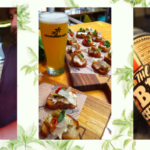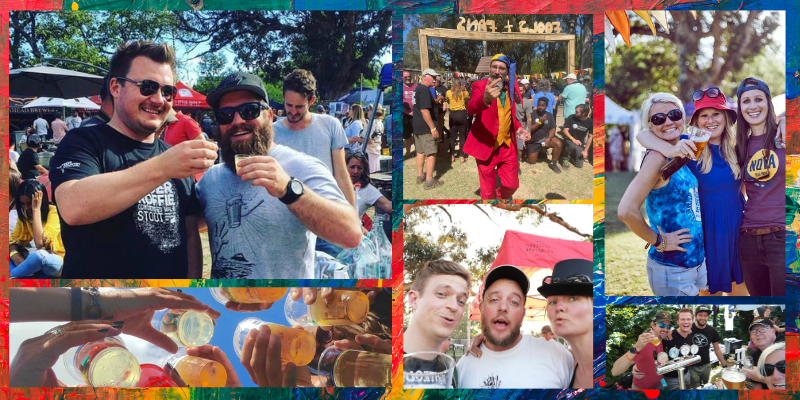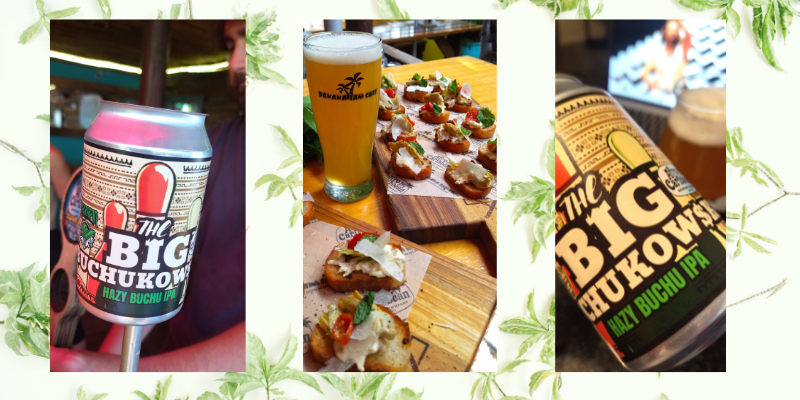Birds do it (women that is), beards do it, even people that aren’t weird do it. So in honour of International Beer Day I present to you a quick Q&A on how to get started in South Africa’s most happening hobby – homebrewing.
Why would I want to brew my own beer?
Do you like beer? If not, then it’s probably not the hobby for you. But if you do, it’s fun, rewarding (when the beer turns out well) and you get to meet nice people – homebrewers are almost always a friendly, relaxed and welcoming bunch.
Isn’t homebrew for weirdy beardies who want to drink on the cheap?

It can be. But it’s also for gurus and beer snobs – those who are striving to produce that perfect pint and learn everything they can about what goes into each sip of ale. Very occasionally, beer is brewed at home by people without beards. This is not thought to affect the end product.
Does homebrew taste nice?
Practice makes perfect. Sometimes it’s crap, just like you sometimes cook up a crap dinner, but that’s the challenge. If you pay attention to things like sanitation and fermentation temperatures, the beer you brew at home can be as good as that produced by any microbrewery.
Don’t I need loads of fancy equipment?
Not necessarily. You can get started with little more than a pot and a bucket.
How long does it take to brew a beer?
Brewing time can be between three and eight hours, depending on the type of brew and how many hurdles you run into. From brewing to drinking you’re looking at anything from two weeks to a year, depending on the beer you’re making and the amount of patience you have before cracking a pint of it.

There are essentially three methods of brewing. Brewing a kit beer is basically like baking a cake with a packet mix. Actually, better think of it as beer cordial – all you need to do is take the pre-hopped malt extract, add water, stir, cool and chuck some yeast in. It’s not a bad way to start and gives insight into the whole sanitation and fermentation side of things. Kits contain a bucket (and all the bits required for fermentation), thermometer, stirring spoon, hydrometer (for testing alcohol levels) and the malt extract that acts as a base for the beer. All you need is some yeast and some bottles.
Don’t settle for a kit beer for long though – you don’t have enough control over the end product to make a truly great beer. Move on to extract brewing, using unhopped malt extract. You’ll need a big pot now to boil your brew, since you’ll be adding your own hops – otherwise the equipment is much the same as for kit brewing. If you want to take it up a notch, you can steep some grains along with the malt extract to give you more control over flavour, aroma and colour. All you need to add to your gear is some sort of bag fashioned from muslin cloth and the malt of your choosing.
The goal though, should ideally be to get into all-grain brewing. Hobbyist bakers wouldn’t settle for packet bread or cake mixes and there’s no reason you can’t go all out on a proper brew. You do need a bit more space and a few more bits of equipment. Add a mash tun (a cooler box works perfectly) to your stash and toss out that extract in favour of all raw materials – a variety of malted barleys and hop pellets.
My brain doesn’t do science – can I still brew?
Have you ever made a cup of tea or a bowl of soup? At the end of the day, brewing is much the same thing. Sure, if you want to perfect the procedure, you will need to train your brain in to cope with some science, but a PhD in chemical engineering is not a necessity.
 Where can I buy stuff to get started?
Where can I buy stuff to get started?
Luckily, you’re in South Africa at the right time. Homebrewing shops are sprouting up all over and if there isn’t one near you, you can order stuff for delivery. Contact BeerLab or BeerGuevara in Cape Town, the somewhat confusingly-named Winemakers’ Club in Gordon’s Bay or The Beer Keg in Johannesburg. Between them they have virtually every type of grain, every variety of hop and every piece of equipment the homebrewer could desire.
How much is this all going to cost?
This is a piece of string question. A basic kit from BeerLab costs R750, a big pot from Shoprite will set you back about R250 and a cooler box from somewhere like Pick ‘n’ Pay, Game or Checkers is in the region of R300. From here the sky is the limit. Some homebrewers fix false bottoms to their pots, build counter-flow chilling systems to cool the wort, construct their own fermentation chambers or go all-out and turn their garages into 150-litre breweries.
Is it legal?
Yes. Brewing your own beer is legal, though in Cape Town at least, the latest liquor laws say you need a licence if you have more than 150 litres of booze in your house. (People in other parts of the country – please tell me what the laws are elsewhere).
Is there anyone who can teach me to brew?
There is! BeerLab operates regular hands-on classes for both beginners and those delving into all-grain brewing. Beer Guevara runs workshops with a brewing demo, while The Winemakers’ Club’s BrewCamp takes place twice a month on a Saturday morning and Misty Meadows Microbrewery in George operates occasional brewing weekends. You should also look up your local homebrewing club – many of the members would happily have you along to their next brew day.

My homebrew is awesome and I want people to taste it – what can I do with it now?
Other than feeding it to your friends, why not take some along to share at a homebrewers’ meeting? In Johannesburg, there are various chapters of the Wort Hogs; in Cape Town, look up theSouthYeasters; in Durban check out the East Coast Brewers and on the Garden Route there’s theEden Brewers. The clubs vary in their activities, but you can expect competitions, tasting, troubleshooting, technical talks and basically lots of like-minded people (some with beards) wanting to talk about nothing other than beer, beer, beer.
Can’t I sell it to a bar? Or to my friends?
Alas, you cannot. Not legally anyway. Brewing beer is legal, but selling it is not. You need a licence and you need to be giving SARS their share.
Where can I get more info?
BeerLab: www.beerlab.co.za
BeerGuevara: www.beerguevara.com
The Winemakers’ Club: www.winemakersclub.co.za
The Beer Keg: www.thebeerkeg.co.za
SouthYeasters: www.southyeasters.co.za
The Wort Hogs: www.worthogbrewers.co.za
East Coast Brewers: www.eastcoastbrewers.za.org
The Beer Boys Forum: http://forum.thebeerboys.co.za/
Homebrew Talk: www.homebrewtalk.com
And don’t forget a little offline reading – How to Brew by John Palmer is considered the bible for homebrewers – it should be available at your local homebrewing shop.
This post was first published on The Craft Beer Project.










0 Comments